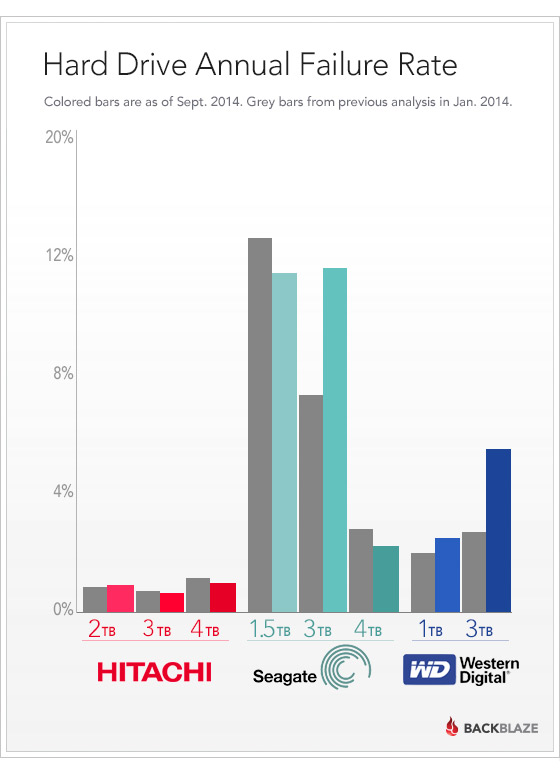This year's Oscar nominations (honoring films released in 2016) were announced on January 24th, and ever since then I've been checking Oscars.org periodically to see if they've published the "view by film" tab on the nominations list. Several news outlets reported on the numbers of nominations different films received, but usually the Academy posts a full list of nominations for each film.
Well, that tab still hasn't appeared as of this writing, but on a whim, I back-hacked the URL based on last year's site, and you know what? The data's actually there. It doesn't appear to be fully cleaned up (the original song nominees are sorted incorrectly), but it's better than nothing:
https://www.oscars.org/oscars/ceremonies/2017?qt-honorees=1#qt-honorees
However, I had already compiled my own list from the per-category nominations page, so I'm posting that information here for everyone else's handy reference. Please note that I'm only listing films with more than one nomination below. For everything else, please refer to the broke-ass page linked above.
La La Land – 14 nominations
Best Picture - Fred Berger, Jordan Horowitz and Marc Platt, Producers
Directing - Damien Chazelle
Actor in a Leading Role - Ryan Gosling
Actress in a Leading Role - Emma Stone
Writing (Original Screenplay) - Damien Chazelle
Cinematography - Linus Sandgren
Costume Design - Mary Zophres
Film Editing - Tom Cross
Music (Original Score) - Justin Hurwitz
Music (Original Song) - "Audition (The Fools Who Dream)"
Music (Original Song) - "City of Stars"
Production Design - David Wasco; Set Decoration: Sandy Reynolds-Wasco
Sound Editing - Ai-Ling Lee and Mildred Iatrou Morgan
Sound Mixing - Andy Nelson, Ai-Ling Lee and Steve A. Morrow
Arrival – 8 nominations
Best Picture - Shawn Levy, Dan Levine, Aaron Ryder and David Linde, Producers
Directing - Denis Villeneuve
Writing (Adapted Screenplay) - Eric Heisserer
Cinematography - Bradford Young
Film Editing - Joe Walker
Production Design - Patrice Vermette; Set Decoration: Paul Hotte
Sound Editing - Sylvain Bellemare
Sound Mixing - Bernard Gariépy Strobl and Claude La Haye
Moonlight – 8 nominations
Best Picture - Adele Romanski, Dede Gardner and Jeremy Kleiner, Producers
Directing - Barry Jenkins
Actor in a Supporting Role - Mahershala Ali
Actress in a Supporting Role - Naomie Harris
Writing (Adapted Screenplay) - Barry Jenkins; Story by Tarell Alvin McCraney
Cinematography - James Laxton
Film Editing - Nat Sanders and Joi McMillon
Music (Original Score) - Nicholas Britell
Hacksaw Ridge – 6 nominations
Best Picture - Bill Mechanic and David Permut, Producers
Directing - Mel Gibson
Actor in a Leading Role - Andrew Garfield
Film Editing - John Gilbert
Sound Editing - Robert Mackenzie and Andy Wright
Sound Mixing - Kevin O’Connell, Andy Wright, Robert Mackenzie and Peter Grace
Lion – 6 nominations
Best Picture - Emile Sherman, Iain Canning and Angie Fielder, Producers
Actor in a Supporting Role - Dev Patel
Actress in a Supporting Role - Nicole Kidman
Writing (Adapted Screenplay) - Luke Davies
Cinematography - Greig Fraser
Music (Original Score) - Dustin O'Halloran and Hauschka
Manchester By The Sea – 6 nominations
Best Picture - Matt Damon, Kimberly Steward, Chris Moore, Lauren Beck and Kevin J. Walsh, Producers
Directing - Kenneth Lonergan
Actor in a Leading Role - Casey Affleck
Actor in a Supporting Role - Lucas Hedges
Actress in a Supporting Role - Michelle Williams
Writing (Original Screenplay) - Kenneth Lonergan
Fences – 4 nominations
Best Picture - Scott Rudin, Denzel Washington and Todd Black, Producers
Actor in a Leading Role - Denzel Washington
Actress in a Supporting Role - Viola Davis
Writing (Adapted Screenplay) - August Wilson
Hell Or High Water – 4 nominations
Best Picture - Carla Hacken and Julie Yorn, Producers
Actor in a Supporting Role - Jeff Bridges
Writing (Original Screenplay) - Taylor Sheridan
Film Editing - Jake Roberts
Hidden Figures – 3 nominations
Best Picture - Donna Gigliotti, Peter Chernin, Jenno Topping, Pharrell Williams and Theodore Melfi, Producers
Actress in a Supporting Role - Octavia Spencer
Writing (Adapted Screenplay) - Allison Schroeder and Theodore Melfi
Jackie – 3 nominations
Actress in a Leading Role - Natalie Portman
Costume Design - Madeline Fontaine
Music (Original Score) - Mica Levi
Deepwater Horizon – 2 nominations
Sound Editing - Wylie Stateman and Renée Tondelli
Visual Effects - Craig Hammack, Jason Snell, Jason Billington and Burt Dalton
Fantastic Beasts And Where to Find Them – 2 nominations
Costume Design - Colleen Atwood
Production Design - Stuart Craig; Set Decoration: Anna Pinnock
Florence Foster Jenkins – 2 nominations
Costume Design - Consolata Boyle
Actress in a Leading Role - Meryl Streep
Kubo And The Two Strings – 2 nominations
Animated Feature Film - Travis Knight and Arianne Sutner
Visual Effects - Steve Emerson, Oliver Jones, Brian McLean and Brad Schiff
A Man Called Ove – 2 nominations
Foreign Language Film (Sweden)
Makeup and Hairstyling - Eva von Bahr and Love Larson
Moana – 2 nominations
Music (Original Song) - Music and Lyric by Lin-Manuel Miranda
Animated Feature Film - John Musker, Ron Clements and Osnat Shurer
Passengers – 2 nominations
Music (Original Score) - Thomas Newman
Production Design - Guy Hendrix Dyas; Set Decoration: Gene Serdena
Rogue One: A Star Wars Story – 2 nominations
Sound Mixing - David Parker, Christopher Scarabosio and Stuart Wilson
Visual Effects - John Knoll, Mohen Leo, Hal Hickel and Neil Corbould
If you're in the Portland, Oregon area, you're welcome to join us at our Oscar Party on February 26th. (Message me for details if you haven't already received an invite, and apologies for the oversight!)
Finally, everyone on the Internet is welcome to follow me on Twitter for #OscarTrivia that day. (Teaser: you'll find out which one of this year's nominees I worked with on a project back in 2011! Feel free to speculate in the comments.)



![Image taken from page 233 of 'Aileen Aroon: a memoir [of a dog]. With other tales of faithful friends and favourites, sketched from the life'](https://farm3.staticflickr.com/2836/11285612254_1cc820e95b_n.jpg)

























